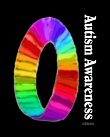Homeschooling books
Last week when we went to the library, I was searching for the John Holt book “How Children Learn“. I have a tattered paperback copy of “How Children Fail” that has been a part of my collection since my freshman year in college. (not sure if it was for the intro to ed or the exceptional children class…both were taught by the same guy). I remember when I first read the book being really confused by it. It seemed like it was actually against public education, but I was nervous to present that view in the class because, surely, it couldn’t be what the point of it was supposed to be in a class meaning to educate teachers. How ironic is that. So afraid of giving the wrong answer I didn’t participate in the discussion. I actually remember the book well, but don’t remember the discussion at all, which leads me to think that I might have skipped class that day, because it seems like something I would have remembered. I understand now why it was required reading, especially in the context of the college I went to (small liberal arts college that really challenged students and was populated with professors that spent their college years as 60s radicals). I wish I could have appreciated it at the time, but, alas, I wasn’t ready for it yet.
Anyway, all the books by John Holt were checked out. I was ready to leave, when another book on my “list” caught my eye “Homeschooling our Children, Unschooling Ourselves” by Alison McKee. Even though I had wanted to wait to read John Holt before I read this one, since her philosophy is based on John Holt, I put it in my stack of books and it has been on my desk waiting for me to dig in. In typical fashion, I read a few paragraphs yesterday, but it intrigued me enough to finish it off today. I was really relating to it much more than I expected.
She works in the school in a capacity similar to a Speech Therapist, except dealing with vision (low vision and blind kids) and was, therefore, immersed in several different types of public school environments. She describes several frustrating instances where learning is curbed in schools. My real frustration was that I saw that, and much more, in the few weeks I was with Zane. I am really grateful that I did go with Zane those few weeks. I would have always wondered if I was over exaggerating the possible problems if I hadn’t gone. I discovered I was, instead, minimizing the problems. They were much greater, and much more fundamental than I could have conceived.
Instead, I discovered that despite the best efforts of the people working there, the system itself was just too fundamentally flawed to be able to really nurture Zane’s learning differences. There were major, insurmountable, obstacles that no amount of accommodations could address. I remember, at one point, when I was working on the list of possible accommodations, that I almost felt lucky to have a bit more control over his education…that because they are required by law to follow an IEP, there was a lot better chance of getting a more appropriate education than was afforded regular education students. His learning differences were diagnosed and categorized so that they had to be recognized. I felt like it was unfair that only those whose differences were so notable got that luxury, and that it should be afforded to every student. Every person should be taught in a way that best accommodates their learning style.
I am only beginning to realize the challenges that are set before me as I begin to homeschool. I struggle deeply with what experts say about autism and how to teach kids with autism and how that differs from my real life experience of it. They say ROUTINE, ROUTINE, ROUTINE. That people with autism thrive on extreme routine. Now, I can agree to this to a point. In an unfamiliar environment, where there are more complex, unknown social requirements, routine helps a great deal with his anxiety. In a classroom, a group, or a more formal setting, routine helps give him scaffolding to be able to cope.
However, in everyday life, routine bores the snot out of him. In learning, rote learning is absolutely the worst thing you can do. Once he has it, he has it, and he does not want to waste his time looking at it again. If you try to push a bit to get him to “finish this page” or “finish this lesson” you will be confronted with a very angry kid who will not want to even START that subject for days on end because he doesn’t want to get stuck “finishing” after he already knows it. He taught me the hard way that I need to just back off and let him learn at his own pace. Until I read this book, it didn’t even occur to me that my need to “finish” has more to do with my own schooling because the stopping points are often very arbitrary if you look at them in the grand scheme of things.
She expressed in the book that one of the hardest things to deal with as an unschooling parent, is that we were raised with the drive to test, to see if the student knows the “appropriate” amount of information. She talks about trying to sneak in assessing where they were in conversations and how it sometimes backfired on her. Well, add another level to that…a person who can’t really talk about things. Trying to figure out what he knows is a delicate balance between figuring out whether he is struggling to find the answer or if he already knows it and is bored with you asking and starting to make a game of it.
It is also particularly difficult to let them follow their interests when it is so difficult for us to easily understand what his interests are with accuracy. Sometimes it is pretty hit and miss to find things that hone in on exactly what part of something interests him. For instance, he LOVED Tacky the Penguin. So I thought that meant he liked penguins. He liked looking at them in the zoo, he enjoyed looking at books about them, he enjoyed some of the other books in the Tacky series, but then some of them really didn’t hold his interest at all. He was mildly interested in the other things we did to expand on “Tacky”, but nothing that just lit his love for learning. After a while, he wasn’t as interested in Tacky either. We let it set for a while and moved on to other things, and 6 months later, he was interested in reading Tacky again. This time we didn’t mess with it, just let him enjoy Tacky just for fun.
I am having a hard time with this. He simply won’t allow me to just have a typical curriculum. (a school-in-a-box type approach) He just won’t do it. He will allow himself to be pushed a bit, but there is no way we can follow a typical curriculum schedule with him. He demands a more unschool type environment to learn. He learned to read and do math basically with us just facilitating. He took the lead and it worked the way it supposed to work. A natural interest lead to genuine learning.
However, he didn’t learn to talk the normal way. You know…the one big argument most unschoolers use…that they learn to walk and talk on their own and parents just facilitate learning and unschooling is just an extension of that. Well, it requires a huge amount more faith when they didn’t learn to talk on their own. And he is still struggling with talking, both the mechanics (motor planning) and the language aspect of it. He gets math and reading, but is still struggling with basic communication. It is incredibly challenging to figure out how to help him learn when he can’t communicate what he is interested in and what he wants to learn more about with the ease most of us take for granted. Even if he knows, it is hard for him to get the message to us.
I wish there was somebody I could go to who could give me advice on how to do all of this, but it is pretty clear that I am just going to have to figure this thing out, step by step, with a huge amount of patience and faith. I hope I am up to the task.
btw..the book is fabulous. I liked it so much I am hoping to add it to my collection because I can see myself referring to it again.


Well, I don’t know about the advice part – but I’ve been unschooling all my kids since birth, including the autistic one. I also recommend the Shine with Unschooling list. There are lots of parents of nontypically developing children on it.
I have to go to bed now. I will try to call you tomorrow. What time is best?
Anytime after about 9 or 10am until 11-midnight. We are gone between 3:30-4:45 for therapy, but are probably going to be in the house the rest of the time. (we might not even be gone for therapy…I will have to see how Zane is feeling tomorrow). I also responded to your thread on MDC. If you want to talk about that too I would be willing to.
You know, I was a special education teacher in the public schools before I started unschooling, and you’re articulated a lot of my reasons for getting out of that system… because no matter how hard I tried, the whole system wasn’t set up to serve the needs of the kids I was trying to help.
I have a tremendous amount of faith in you as Zane’s parent/guide. You’ve been listening to your gut with him and you are willing to make changes when something is not working. I think that is what Zane needs, someone willing to push him when he needs it and let go when he doesn’t. Figuring out what needs pushing and what doesn’t is a trick with all kids. As long as you are willing to pay attention and make changes, including changes to yourself and your attitude, it will all work out. Believe me, I’m living this. Not with autism but with a child who challenges my conventions of how things should be. Our homeschooling journey has been one long adjustment period. Things are going well right now, I know very well that that may change at any time.
You are definitely up to the task. It’s not going to be a breeze all the time but it sure as hell beats the alternative (him being in school) for right now. On your worst day with him he’s still much better off than if he were in that classroom every day.
I admire your fortitude so much
Wait, is non typical what NT means? I’ve been trying to figure it out for months!
NT means “Neurotypical” or not autistic or typically developing.